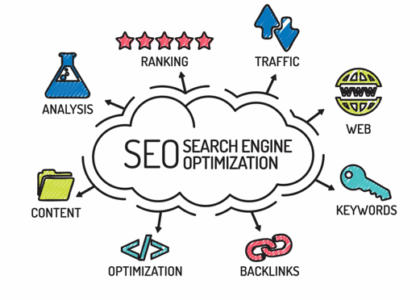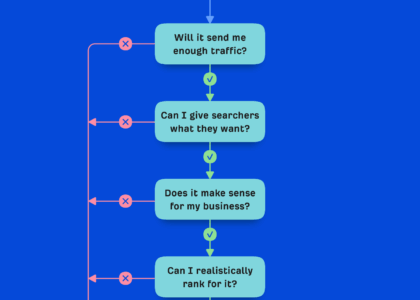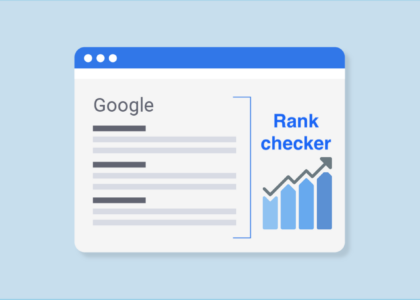The Power of Search Engine Marketing Analytics
Search engine marketing (SEM) has become a crucial component of digital marketing strategies for businesses looking to boost their online visibility and drive targeted traffic to their websites. By leveraging SEM analytics, businesses can gain valuable insights into the performance of their campaigns and make data-driven decisions to optimise their marketing efforts.
Understanding SEM Analytics
SEM analytics involves the collection, analysis, and interpretation of data related to search engine marketing campaigns. This data includes key metrics such as click-through rates, conversion rates, cost per click, keyword performance, and more. By tracking and analysing these metrics, businesses can evaluate the effectiveness of their SEM campaigns and identify areas for improvement.
The Benefits of SEM Analytics
Improved Campaign Performance: By monitoring key metrics through SEM analytics, businesses can identify which keywords, ads, or landing pages are performing well and which ones need adjustment. This insight allows them to make informed decisions to optimise their campaigns for better results.
Cost Efficiency: SEM analytics help businesses track their advertising spend and measure the return on investment (ROI) of their campaigns. By identifying high-performing keywords and eliminating underperforming ones, businesses can maximise the impact of their budget and achieve better cost efficiency.
Data-Driven Decision Making: With SEM analytics, businesses can move away from guesswork and base their marketing decisions on concrete data. This data-driven approach enables businesses to make informed choices that are more likely to yield positive outcomes.
Key Metrics in SEM Analytics
Click-Through Rate (CTR): The percentage of users who click on an ad after seeing it.
Conversion Rate: The percentage of users who take a desired action on a website after clicking on an ad.
Cost Per Click (CPC): The amount businesses pay each time a user clicks on their ad.
Quality Score: A metric used by search engines to evaluate the relevance and quality of ads and keywords.
Return on Ad Spend (ROAS): The revenue generated for every pound spent on advertising.
In Conclusion
The use of search engine marketing analytics is essential for businesses looking to maximise the effectiveness of their SEM campaigns. By harnessing the power of data-driven insights, businesses can refine their strategies, increase ROI, and achieve greater success in the competitive online landscape.
Essential FAQs on Search Engine Marketing Analytics for Enhanced Business Performance
- What is search engine marketing analytics?
- Why is search engine marketing analytics important for businesses?
- What key metrics are tracked in search engine marketing analytics?
- How can businesses use search engine marketing analytics to improve campaign performance?
- What are the benefits of using SEM analytics in digital marketing strategies?
- How does SEM analytics help businesses measure the effectiveness of their advertising spend?
- What tools or platforms are commonly used for search engine marketing analytics?
What is search engine marketing analytics?
Search engine marketing analytics refers to the process of collecting, analysing, and interpreting data related to search engine marketing campaigns. It involves tracking key metrics such as click-through rates, conversion rates, cost per click, and keyword performance to evaluate the effectiveness of SEM efforts. By utilising SEM analytics, businesses can gain valuable insights into the performance of their online advertising campaigns and make informed decisions to optimise their strategies for better results. This data-driven approach allows businesses to measure the impact of their SEM activities, improve campaign performance, and achieve greater cost efficiency in their digital marketing efforts.
Why is search engine marketing analytics important for businesses?
Search engine marketing analytics is crucial for businesses as it provides valuable insights into the performance of their marketing campaigns. By tracking key metrics such as click-through rates, conversion rates, and cost per click, businesses can evaluate the effectiveness of their SEM efforts and make data-driven decisions to optimise their strategies. SEM analytics help businesses understand which keywords, ads, or landing pages are driving results and which ones need improvement. This allows businesses to maximise their ROI, increase cost efficiency, and make informed decisions that lead to better outcomes in the competitive online landscape.
What key metrics are tracked in search engine marketing analytics?
In search engine marketing analytics, several key metrics are tracked to evaluate the performance and effectiveness of marketing campaigns. These metrics include click-through rate (CTR), which measures the percentage of users who click on an ad after viewing it; conversion rate, which indicates the percentage of users who take a desired action on a website after clicking on an ad; cost per click (CPC), representing the amount paid for each click on an ad; quality score, used by search engines to assess the relevance and quality of ads and keywords; and return on ad spend (ROAS), which calculates the revenue generated for every unit of currency spent on advertising. By monitoring and analysing these key metrics, businesses can make informed decisions to optimise their search engine marketing strategies for better results.
How can businesses use search engine marketing analytics to improve campaign performance?
Businesses can utilise search engine marketing analytics to enhance campaign performance by closely monitoring key metrics such as click-through rates, conversion rates, cost per click, and keyword performance. By analysing these metrics, businesses can identify trends and patterns in their SEM campaigns, allowing them to make data-driven decisions to optimise their strategies. For example, businesses can pinpoint high-performing keywords and ads that drive the most conversions, while also identifying underperforming elements that may need adjustment. This insight enables businesses to allocate their resources more effectively, refine their targeting strategies, and ultimately improve the overall efficiency and effectiveness of their SEM campaigns.
What are the benefits of using SEM analytics in digital marketing strategies?
Utilising SEM analytics in digital marketing strategies offers a multitude of benefits for businesses. By leveraging SEM analytics, businesses can gain valuable insights into the performance of their search engine marketing campaigns. These insights enable businesses to measure the effectiveness of their ads, keywords, and landing pages, allowing them to make data-driven decisions to optimise their campaigns for better results. Additionally, SEM analytics help businesses track their advertising spend and measure the return on investment (ROI) of their campaigns, leading to improved cost efficiency. Overall, the use of SEM analytics empowers businesses to enhance campaign performance, make informed decisions based on concrete data, and achieve greater success in their digital marketing efforts.
How does SEM analytics help businesses measure the effectiveness of their advertising spend?
SEM analytics plays a crucial role in helping businesses measure the effectiveness of their advertising spend by providing valuable insights into key performance metrics. By tracking metrics such as click-through rates, conversion rates, cost per click, and return on ad spend, businesses can evaluate the impact of their SEM campaigns and determine the ROI of their advertising efforts. This data allows businesses to identify which keywords, ads, or landing pages are driving the most valuable traffic and conversions, enabling them to make informed decisions on where to allocate their budget for maximum impact and efficiency. Ultimately, SEM analytics empowers businesses to optimise their marketing strategies based on concrete data, leading to improved campaign performance and better overall results.
What tools or platforms are commonly used for search engine marketing analytics?
A variety of tools and platforms are commonly used for search engine marketing analytics to track and measure the performance of SEM campaigns effectively. Popular tools include Google Analytics, which provides in-depth insights into website traffic, user behaviour, and conversion tracking. Google Ads (formerly AdWords) offers robust features for monitoring ad performance, keyword analysis, and campaign optimisation. Other widely used platforms include SEMrush, a comprehensive SEO tool that also provides SEM analytics capabilities, and Bing Ads Intelligence, which offers insights specific to Bing search engine marketing campaigns. These tools play a vital role in helping businesses make informed decisions based on data-driven analysis to enhance the effectiveness of their search engine marketing strategies.





